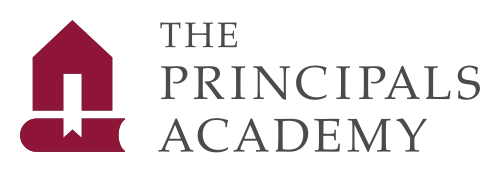Looking back on our valuable experience as teachers and school leaders, we all know that, whether we have one or two degrees, our training as teachers only really started on our first day as full-time classroom practitioners. It’s in that cauldron – that forty-plus slice of life – at either a tiny tot or teenage stage, that our skills were honed.
The big question is what we, as school leaders, can do to make all our classrooms high quality teaching and learning spaces. I discussed this in depth with the ten principals I visit every fortnight. That word ‘visit’ belies an intensive session sharing our news, offloading, pin-pointing issues, finding ways forward, building professional capital in the team and setting meaningful targets. We always part company satisfied that we have zoned in on a fundamental element of school functionality. If I’ve done most of the talking, we’ve got nowhere.
The induction of the novice teacher was central in every discussion. We all know the value of mentors, but we need mentors, not necessarily departmental heads, who are experts in their subjects, in the practice of teaching and in classroom management. Mentoring happens in minutes spent daily and weekly in that first year. It’s not terribly time-consuming; it’s caring collaboration, identifying what worked and what didn’t, talking through the day and trying different approaches. Obviously, being open to learning and to being mentored is an indispensable requisite for the teaching profession.
We looked at what we tell our teachers about classroom management. Like ‘get there first, get them in, get on with it’. Like the three most important rules of classroom management. Be prepared. Be more prepared. Be even better prepared.
Like clearly indicating the learning at hand, the process to be followed, the expectations for today. Like having the best possible seating plan, even in the most overcrowded classroom. Like setting ability or progress groups; like careful separation of key disrupters in higher grades; like the avoidance of escalating disagreements with individuals in front of the whole class. Like getting to know the learners as individuals and building the quality relationships which underpin successful teaching.
I loved the simple example one principal offered. ‘When you ask a question and the learner gets it wrong’, she said, ‘go back and ask the same learner an easier question just to re-include and promote full participation’.
The point is that, just like the operating theatre or the car dealer workshop, the classroom has a clear protocol of standing operating procedures, and, without them, the impact on health, safety or learning is life changing. Classroom management is, clearly, that important.
One principal hit the heart of the matter. With honesty and humility, he said, ‘If I slack, I find my school slacks’. The point is we can’t expect teachers to manage their own classrooms, if the school and its extended leadership doesn’t demand and deliver the institutional rigour, routine and rituals conducive to a climate or a culture of excellence.
Let’s zone in on those four words. Institutional implies the total commitment to the functionality of the school day by the principal, deputy, the management team as a collective unit and the teachers’ attitude and focus both within and beyond their classrooms.
Rigour is, as you know by now, my favourite word in education. It’s that basic accountability to doing things properly, accurately, thoroughly and with firm and exacting standards – in this context, as a teaching team. One principal put it best. ‘It’s all about bringing our A-game to school every day’, he said.
Routine is the predictability, the structure and the stability which optimises instructional time and school functionality. But routines require principals and deputies to be out there at all the critical times. Sounds impossible. It’s not. It’s the only way.
Rituals are little things which build that culture of excellence like an assembly every term to honour the top thirty in a grade or the ten most improved this quarter; the way a school community unites in celebration, in promoting ethical behaviour, respect, heritage, wellness, fun and fundraising. There are classroom rituals, too, which high quality teachers use to include, to engage, to connect and to add colour and character to the classroom.
Teaching is a tough profession these days, but teachers must be tough, too. There are school-based support teams, grade heads and deputies in the background, but teachers must, most of the time, learn to solve their own daily classroom issues themselves. Being immediately punitive solves little. Teachers, with a growth mindset, rather find solutions which are caring, creative, inclusive and lasting.
Principals, tighten that institutional rigour, routine and ritual. You owe it to your teachers.
Til next time.
Paul
Coach/Mentor: The Principals Academy Trust
Keeping in Touch in Tough Times #15 of 2023, 18 September 2023
